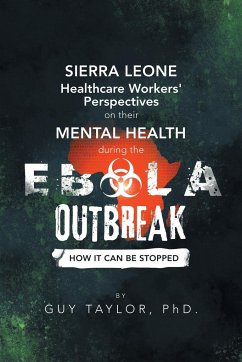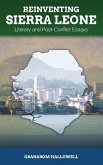The mental health of healthcare workers during the Ebola outbreak in West Africa was a serious concern for healthcare professionals and the mental health field. One area in West Africa where healthcare workers played a significant role during the Ebola outbreak of 2014 and 2015 was Sierra Leone. This qualitative research study was designed to explore the perceptions of Sierra Leoneans healthcare workers' mental health, how they coped, and treatment they received while providing care for Ebola virus patients. This study, with a phenomenological research approach, used purposeful sampling to recruit 10 healthcare workers to participate in semi structured, open-ended interviews. The stress theory model and a hermeneutic phenomenology conceptual framework were used as a lens of analysis to understand the views of healthcare workers who worked directly with Ebola virus patients in Freetown, Sierra Leone. The results of the analysis of the collected data produced 9 major themes. The major themes suggest that healthcare workers experienced mental health symptoms such as depression and anxiety, personal thoughts and feelings such as insomnia, and suicidal ideation. Strategies for coping included using the Bible; and the detrimental impact included facing discrimination after the Ebola outbreak. Most of the healthcare workers blame the government for not providing adequate coping resources, which led to the personal consequence of hopelessness. This study may benefit mental health professionals working in an epidemic. Additionally, this study may contribute to social change by providing a deeper understanding of the mental health system and healthcare workers in Freetown, Sierra Leone.
Hinweis: Dieser Artikel kann nur an eine deutsche Lieferadresse ausgeliefert werden.
Hinweis: Dieser Artikel kann nur an eine deutsche Lieferadresse ausgeliefert werden.








